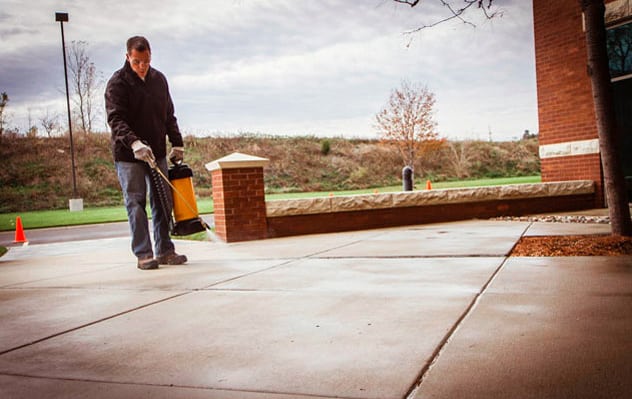Protecting concrete and other masonry surfaces from the effects of winter in the summertime can help your customers save money in the long run. That’s because weatherproofing today is much less costly than repairing damaged, unprotected concrete in just a few years.
It may seem counter-intuitive, but late summer to early fall is the ideal time to properly prepare and protect concrete driveways, parking lots, sidewalks, streets and other hard surfaces from destruction during the cold and icy months. Our two penetrating water and salt barriers, Saltguard and Saltguard WB, need to be applied during warm and dry conditions with ample time to cure.*
If left unprotected from salts, water, sand and other water-borne contaminants, concrete can deteriorate and become damaged very quickly. When water is allowed in, rebar can rust and lead to spalling, buckling and other serious problems.
Call us today to stock up on Saltguard and Saltguard WB. We’re here M-F, 7a-5p CST at 1-800-255-4255.
*Recommended surface and air temperatures for application are between 40-90° F (4-32° C) for Saltguard, and 40-95° F (4-35° C) for Saltguard WB. Both products need to dwell for 6-8 hours at an above-freezing temperature.
![]()

